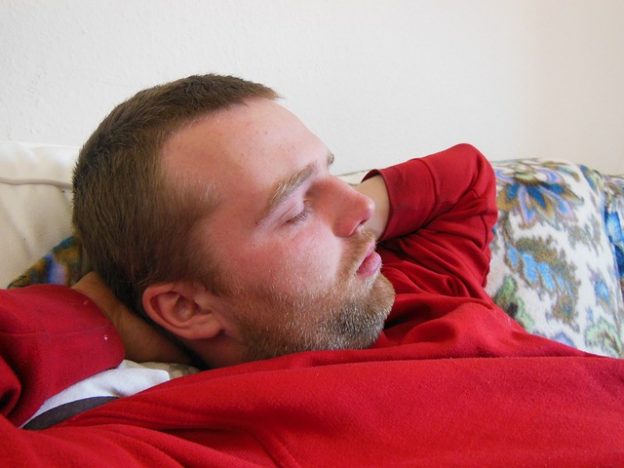Power napping is a short nap that lasts between 10 to 30 minutes, taken during the day to help boost energy and productivity. Sleep is an essential part of our daily routine, and it plays a crucial role in our overall health and success. Getting enough sleep is vital for our physical and mental well-being, and power napping is an effective way to ensure we get the rest we need.
The Science Behind Power Napping
 Sleep occurs in cycles and stages, with each cycle lasting around 90 minutes. The first stage of sleep is light sleep, followed by deep sleep, and then rapid eye movement (REM) sleep. Power napping fits into the first stage of sleep, which is the lightest stage of sleep. This stage of sleep helps to restore alertness and energy levels.
Sleep occurs in cycles and stages, with each cycle lasting around 90 minutes. The first stage of sleep is light sleep, followed by deep sleep, and then rapid eye movement (REM) sleep. Power napping fits into the first stage of sleep, which is the lightest stage of sleep. This stage of sleep helps to restore alertness and energy levels.
Research has shown that power napping can have numerous benefits for our health and well-being. A study conducted by NASA found that pilots who took a 26-minute nap during the day improved their performance by 34% and their alertness by 54%. Another study found that taking a power nap can improve memory consolidation, which is the process of transferring information from short-term memory to long-term memory.
Benefits of Power Napping
There are several benefits to taking a power nap during the day. One of the most significant benefits is increased alertness and productivity. When we are tired, it can be challenging to focus on tasks and stay productive. Taking a power nap can help us recharge our batteries and improve our ability to concentrate.
Power napping can also improve memory and learning. During sleep, our brains consolidate memories, which helps us retain information better. Taking a power nap can help us remember important information more effectively.
Another benefit of power napping is reduced stress and anxiety. When we are stressed or anxious, it can be challenging to relax and unwind. Taking a power nap can help us reduce stress levels and feel more relaxed.
Finally, power napping can boost our immune system. Sleep is essential for our bodies to repair and regenerate, and taking a power nap can help us stay healthy and fight off illness.
How to Power Nap
Creating a conducive environment for power napping is essential. Find a quiet, dark place where you can lie down comfortably. Use earplugs or noise-cancelling headphones to block out any noise, and use an eye mask to block out any light.
The ideal duration of a power nap is between 10 to 30 minutes. Any longer than this, and you risk entering deep sleep, which can leave you feeling groggy and disoriented when you wake up.
Techniques for falling asleep quickly include deep breathing exercises, progressive muscle relaxation, and visualization techniques. Experiment with different techniques to find what works best for you.
Power Napping for Improved Performance
Many successful people incorporate power napping into their daily routine. For example, Winston Churchill famously took a nap every afternoon during World War II to help him stay alert and focused during the day.
Power napping can improve work performance and productivity by helping us stay focused and alert throughout the day. It can also help us make better decisions by improving our cognitive function.
Power Napping for Stress Relief
Power napping can be an effective tool for managing stress and anxiety. When we are stressed or anxious, our bodies release cortisol, which is a hormone that can interfere with sleep. Taking a power nap can help us reduce cortisol levels and feel more relaxed.
Techniques for using power napping as a stress management tool include taking regular breaks throughout the day to rest and recharge, practicing mindfulness meditation, and engaging in physical activity.
Power Napping for Improved Health
Getting enough sleep is essential for our physical health. Sleep helps our bodies repair and regenerate, and it is essential for maintaining a healthy immune system. Power napping can help us get the rest we need to stay healthy and fight off illness.
The link between sleep and physical health is well-established. Lack of sleep has been linked to numerous health problems, including obesity, diabetes, and heart disease. Taking a power nap can help us get the rest we need to stay healthy and reduce our risk of developing these conditions.
In conclusion, power napping is an effective way to boost energy and productivity during the day. It can improve our cognitive function, memory consolidation, and reduce stress levels. Incorporating power napping into our daily routine can help us stay healthy, improve our work performance, and enhance our overall well-being. So next time you feel tired or sluggish during the day, consider taking a power nap to recharge your batteries and improve your productivity.






